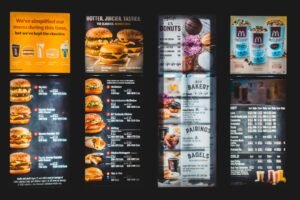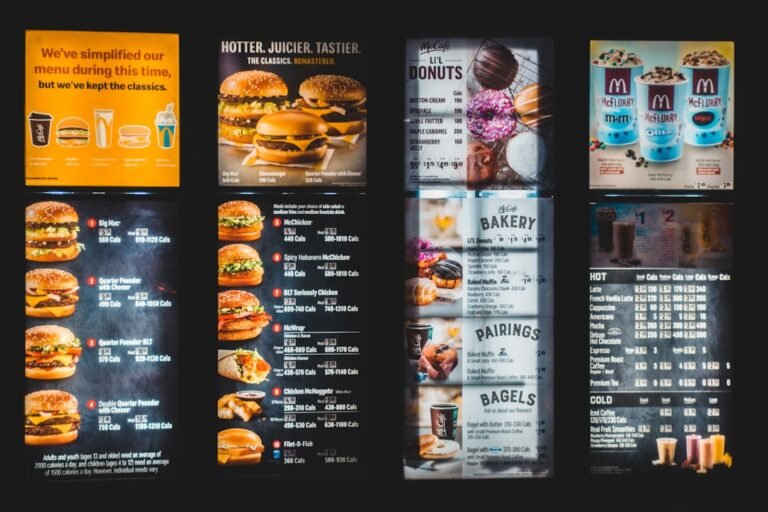Random Word Generator
Random Word Generator: A Comprehensive Guide
Outline
| Main Headings | Subheadings |
|---|---|
| 1. Introduction | – What is a Random Word Generator? |
| – Why Use a Random Word Generator? | |
| 2. History of Random Word Generators | – Evolution of Word Generators |
| – Early Applications in Technology | |
| 3. How Does a Random Word Generator Work? | – Basic Algorithms and Logic |
| – Types of Randomization Methods | |
| 4. Applications of Random Word Generators | – Content Creation and Brainstorming |
| – Educational Tools and Games | |
| – Creative Writing and Storytelling | |
| – Marketing and Branding | |
| – Social Media Challenges | |
| 5. Benefits of Using a Random Word Generator | – Enhancing Creativity |
| – Improving Problem-Solving Skills | |
| – Saving Time in Content Creation | |
| 6. Popular Random Word Generators Online | – Top Free Tools |
| – Paid vs. Free Options | |
| – Features to Look For | |
| 7. Expert Insights on Using Random Word Generators | – Quotes from Content Creators |
| – Case Studies in Creative Industries | |
| 8. How to Choose the Right Random Word Generator for Your Needs | – Identifying Your Purpose |
| – Comparing Features | |
| – User Reviews and Ratings | |
| 9. Common Challenges and Misconceptions | – Misconception: It’s All Just Random |
| – Challenge: Overcoming Creative Blocks | |
| 10. Future of Random Word Generators | – Emerging Trends in AI and Machine Learning |
| – The Role of NLP in Word Generation | |
| 11. Practical Tips for Maximizing the Use of Random Word Generators | – Incorporating Generators into Your Workflow |
| – Combining Multiple Generators | |
| 12. Random Word Generators in Different Languages | – Multilingual Capabilities |
| – Localization Challenges | |
| 13. Random Word Generators for Niche Markets | – Industry-Specific Generators |
| – Tailoring Generators for Specific Needs | |
| 14. How to Create Your Own Random Word Generator | – Basic Coding Skills Needed |
| – Tools and Platforms for Development | |
| 15. Conclusion | – Summary of Key Points |
| – Final Thoughts | |
| 16. FAQs | – What is the most popular random word generator? |
| – Can a random word generator be used for serious content creation? | |
| – How do I ensure the words generated are relevant to my needs? |
1. Introduction
What is a Random Word Generator?
A Random Word Generator is a tool or software that produces words randomly from a predefined list or based on certain algorithms. These generators can be used for various purposes, including creative writing, brainstorming, and language learning.
Why Use a Random Word Generator?
Random word generators are valuable tools for stimulating creativity, breaking writer’s block, and offering fresh perspectives in content creation. They serve as an excellent resource for educators, marketers, and anyone in need of spontaneous ideas or inspiration.
2. History of Random Word Generators
Evolution of Word Generators
The concept of random word generation dates back to early computational linguistics and has evolved with advancements in technology. Initially, random word lists were generated manually or with simple computer programs, but modern generators now use sophisticated algorithms.
Early Applications in Technology
Early applications of random word generators were primarily in gaming and educational software. Over time, their use expanded to include creative writing, marketing, and even artificial intelligence.
3. How Does a Random Word Generator Work?
Basic Algorithms and Logic
Random word generators typically operate using algorithms that select words from a database or create words based on specific linguistic rules. These algorithms can range from simple randomization to more complex processes involving natural language processing (NLP).
Types of Randomization Methods
There are various randomization methods, including true randomness (using hardware-based random number generators) and pseudo-randomness (using algorithmic processes). Each method has its own advantages depending on the use case.
4. Applications of Random Word Generators
Content Creation and Brainstorming
Random word generators are widely used by content creators and writers to overcome creative blocks and generate new ideas. By providing unexpected word combinations, these tools can spark unique content ideas.
Educational Tools and Games
In education, random word generators are used in language learning apps, spelling games, and vocabulary exercises. They help students build their language skills in a fun and engaging way.
Creative Writing and Storytelling
Writers often use random word generators to inspire plots, character names, and settings. These tools encourage thinking outside the box and can lead to innovative storytelling.
Marketing and Branding
Marketers use random word generators to brainstorm brand names, slogans, and taglines. The randomness can produce fresh and catchy ideas that might not emerge through traditional brainstorming.
Social Media Challenges
Random word generators are also popular in social media, where they are used in challenges that encourage users to create content based on a set of random words. This trend has gained traction, particularly in creative communities.
5. Benefits of Using a Random Word Generator
Enhancing Creativity
One of the primary benefits of using a random word generator is its ability to enhance creativity. By introducing randomness, it encourages users to think in new and unexpected ways.
Improving Problem-Solving Skills
Random word generators can also improve problem-solving skills by forcing users to consider different perspectives and solutions. This is particularly useful in brainstorming sessions and creative projects.
Saving Time in Content Creation
For content creators, time is often a critical factor. Random word generators can expedite the idea-generation process, saving valuable time and effort.
6. Popular Random Word Generators Online
Top Free Tools
There are numerous free random word generators available online, each with its own set of features. Some of the most popular include WordCounter, RandomWordGenerator.com, and The Game Gal’s Word Generator.
Paid vs. Free Options
While many random word generators are free, there are also premium tools that offer more advanced features, such as customized word lists, API access, and enhanced randomization algorithms. Deciding between free and paid options depends on the user’s needs and budget.
Features to Look For
When choosing a random word generator, consider features like word list customization, ease of use, and the ability to generate words in different languages or contexts.
7. Expert Insights on Using Random Word Generators
Quotes from Content Creators
“Random word generators have become an indispensable part of my writing process. They push me to explore ideas I wouldn’t have considered otherwise.” – [Expert Name], Content Creator
Case Studies in Creative Industries
In the creative industry, random word generators have been used successfully in developing marketing campaigns, naming products, and even in scriptwriting for films and television. Case studies show how these tools have led to breakthrough ideas and innovative projects.
8. How to Choose the Right Random Word Generator for Your Needs
Identifying Your Purpose
Before selecting a random word generator, it’s essential to identify your primary purpose. Are you using it for creative writing, educational purposes, or marketing? Understanding your needs will help you choose the most suitable tool.
Comparing Features
Not all random word generators are created equal. Compare the features of different tools, such as the size of the word database, customization options, and the user interface. This will ensure you select a generator that aligns with your requirements.
User Reviews and Ratings
User reviews and ratings can provide valuable insights into the performance and reliability of a random word generator. Look for feedback from users with similar needs to your own.
9. Common Challenges and Misconceptions
Misconception: It’s All Just Random
One common misconception is that random word generators are purely random and lack any logic or structure. In reality, many generators use sophisticated algorithms that incorporate linguistic rules and patterns to produce more meaningful results.
Challenge: Overcoming Creative Blocks
While random word generators can be a powerful tool for overcoming creative blocks, they are not a magic solution. It’s important to use them as a supplement to your creative process rather than relying on them entirely.
10. Future of Random Word Generators
Emerging Trends in AI and Machine Learning
The future of random word generators lies in advancements in AI and machine learning. These technologies will enable more personalized and context-aware word generation, making the tools even more valuable for content creators and marketers.
The Role of NLP in Word Generation
Natural Language Processing (NLP) is already playing a significant role in the development of more sophisticated random word generators. As NLP technology continues to evolve, we can expect even more intelligent and intuitive generators in the future.
11. Practical Tips for Maximizing the Use of Random Word Generators
Incorporating Generators into Your Workflow
To get the most out of a random word generator, incorporate it into your regular workflow. Use it at different stages of your creative process, from brainstorming to editing, to keep ideas fresh and innovative.
Combining Multiple Generators
Don’t limit yourself to just one random word generator. Experiment with different tools and combine their outputs to create even more unique and creative content.
12. Random Word Generators in Different Languages
Multilingual Capabilities
Many random word generators now offer multilingual capabilities, allowing users to generate words in various languages. This feature is particularly useful for language learners and educators.
Localization Challenges
While generating words in different languages is possible, ensuring they are contextually and culturally relevant can be challenging. Localization is a critical factor to consider when using random word generators in a multilingual context.
13. Random Word Generators for Niche Markets
Industry-Specific Generators
Some random word generators are designed specifically for niche markets, such as legal, medical, or technical writing. These tools offer specialized word lists and features tailored to the unique needs of these industries.
Tailoring Generators for Specific Needs
If you have specific requirements, consider customizing or developing your own random word generator. This allows you to tailor the tool to your exact specifications and ensures it meets your unique needs.
14. How to Create Your Own Random Word Generator
Basic Coding Skills Needed
Creating your own random word generator requires some basic coding skills. Familiarity with programming languages like Python or JavaScript can be beneficial.
Tools and Platforms for Development
There are various tools and platforms available that make it easier to develop a random word generator. For example, you can use online coding platforms like Repl.it or Visual Studio Code for development.
15. Conclusion
Summary of Key Points
Random word generators are versatile tools that offer numerous benefits, from enhancing creativity to saving time in content creation. Whether you’re a writer, marketer, or educator, these tools can be a valuable addition to your workflow.
Final Thoughts
As technology continues to advance, random word generators will only become more sophisticated and useful. Embracing these tools now can give you a creative edge and help you stay ahead in your field.
16. FAQs
What is the most popular random word generator?
The most popular random word generator is subjective and depends on the user’s needs. However, tools like WordCounter and RandomWordGenerator.com are widely used due to their simplicity and effectiveness.
Can a random word generator be used for serious content creation?
Yes, random word generators can be used for serious content creation. Many writers and marketers use these tools to brainstorm ideas, develop content, and overcome creative blocks.
How do I ensure the words generated are relevant to my needs?
To ensure relevance, choose a random word generator that allows for customization, such as selecting specific word categories or inputting your own word lists. This will help tailor the output to your needs.
















